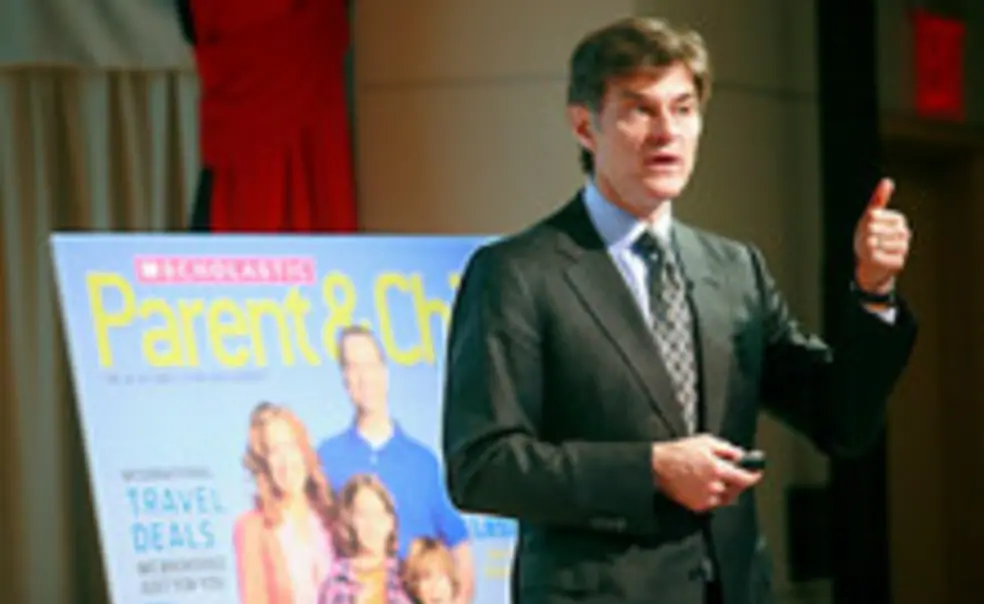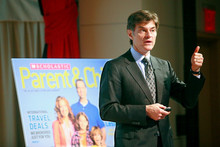Dr. Oz addresses mental and physical health in campus talk
Dr. Mehmet Oz, shown here in 2011, visited Princeton during Mental Health Awareness Week March 8. (Photo: Stuart Ramson/Insider Images for Scholastic)
In a candid and entertaining talk focused on college students and stress, Dr. Mehmet Oz, the talk-show host, surgeon, and author, addressed a packed McCosh 50 on March 8 as part of the student-organized Mental Health Awareness Week on campus.
Saying he “knows what Princeton life is like” because he is a Princeton parent (daughter Daphne graduated in 2008) and has a niece who is currently a junior, Dr. Oz added a rock-star quality to the event. Using video clips, slides, and demonstrations to illustrate his points (instructing the audience in deep-breathing techniques, for example), he rapidly touched on many aspects of mental and physical health.
We are living in a society in which we are disconnected from each other, Oz said, insisting that we need to recreate connections in our daily lives. “When good people see bad things happen and do nothing, that’s when societies dissolve,” he added.
“The best example of mental illness in this country,” according to Dr. Oz, is our “weight issue,” which he connected to chronic stress. Calling obesity the “main health care cost we can change,” he explained how a person’s waist-to-height ratio is the best indicator of a weight problem, pulling down his belt and puffing out his belly to create a big gut.
A professor and vice chairman of surgery at New York Presbyterian Hospital/ Columbia University, Dr. Oz, in quick succession, touched on issues of addiction (“You need to prove to people that they’re worth it”), anger (“Hostility breeds isolation”), sleep (“If you take more than 18 sleeping pills a year, it will affect your mortality”), and how he coped with stress as a Harvard undergraduate (“alcohol”).
He also showed video of his clinics that treat Americans who might not otherwise received medical care (“If you take away someone’s worthiness, you take away their humanity”), and described HealthCorps, the nonprofit organization he founded in which college graduates mentor students at 54 high schools in 13 states on health and fitness.













No responses yet